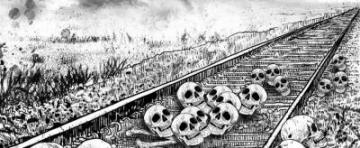A track worker killed by a passenger train in south London was on a zero-hours contract, probably fatigued, and left exposed to danger when a colleague failed to turn up for work, investigators have found. The man died when he was hit from behind at 69mph (111km/h) in Croydon, after midnight on 6 November last year.
Inspectors from the Rail Accident Investigation Branch (RAIB) discovered he was meant to be assisted by his brother that night. However, earlier that day his brother had called to say he was too tired to attend as he had been working as a delivery driver and asked him to forge a signature to say he was there. The investigation also found that the man who had died had only 3.5 hours sleep.
The RAIB found the use of staff on zero-hour contracts created conditions "in which it is difficult to manage fatigue effectively" nor “identify or prevented staff absenting themselves from work without being detected”
The report also recommended that Network Rail review how its outsourced labour suppliers to ensure people are fit to work. It was also found that previous calls for reform, after a death in 2007 and a near-miss in 2017, had been ignored by Network Rail.
Simon French, the chief inspector of rail accidents, went on to criticise Network Rails outdated Victorian methods of protecting staff carrying out track repairs, arguing that modern technology meant there were many ways of improving safety. He also noted that this was something that RAIB has queried before.
However, while no doubt antiquated safety methods are in urgent need of updating, that is not the route cause of the problem. The same safety methods were used in the days of nationalisation by the then state-owned British Rail far more safely. The difference then was that under British Rail, staff were directly employed and properly trained. While, for all it’s failings, British Rail maintained a workplace culture based on paternalism that put rail workers safety before profit.
The route causes of this man death than is rail privatisation, under which managers have outsourced jobs and made cuts to save on cost, in the full knowledge that this will put workers lives at risk. And even though Network Rail is now effectively back under state control, the same cost cutting culture based on obscene work practices remains in place.
The answer, therefore, is not recommendations from toothless rail investigators but to place the railways under workers rather than state or capitalist control. Allowing workers to control and run their own industry is the only system under which the workers themselves have the power to ensure working conditions are safe.
